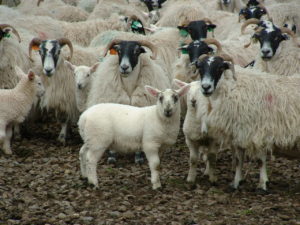Livers Condemned Despite Fluke Treatment?
22 December 2016“I treated my stock so why have my livers being condemned?” is a common question that comes up from time to time. There are several possible reasons and in some cases it is difficult to avoid despite doing everything right.
- Re-infection. Fluke treatments are not long acting. Animals that return to grazing after treatment may become re-infected the very next day.
- Inappropriate product used. Using a product in the autumn that only kills adult liver fluke will allow any immature fluke that are present to survive treatment.
- Incorrect timing of treatment. Leave a suitable interval between housing and treatment. This allows the fluke in the liver to reach an age where your chosen product can kill them. You need to assume that infection may have occurred right up to the day of housing. Alternatively treat at housing and again later.
- Product not expected to kill all the fluke in the liver. Read the small print – if the product only claims to kill 95% of flukes present in the liver then small numbers may survive. Only 1 fluke needs to be detected at slaughter. It is probably unrealistic to expect a 100% kill of fluke each time you treat.
- Treatment failure. This can occur for various reasons including underdosing, mixing of products, poor administration technique or out of date product.
- Treatment failure – resistance. The reasons listed above must be ruled out before the possibility of drug resistant fluke is considered. Talk to your vet or advisor about how to investigate this further.
- Scarring due to previous infection. Fluke feeding and travelling through the liver cause damage to the tissues. Scarring and fibrosis can result particularly in cattle. Livers can be condemned even if fluke are no longer present. If the information is not given it is always worth asking whether active infection was detected.
- The line speed in many abattoirs is considerable. Mistakes do happen but studies have shown that in general overall accuracy is good. If you are concerned ask if you can visit the plant when your stock are being killed.
Heather Stevenson, heather.stevenson@sac.co.uk
Sign up to the FAS newsletter
Receive updates on news, events and publications from Scotland’s Farm Advisory Service

